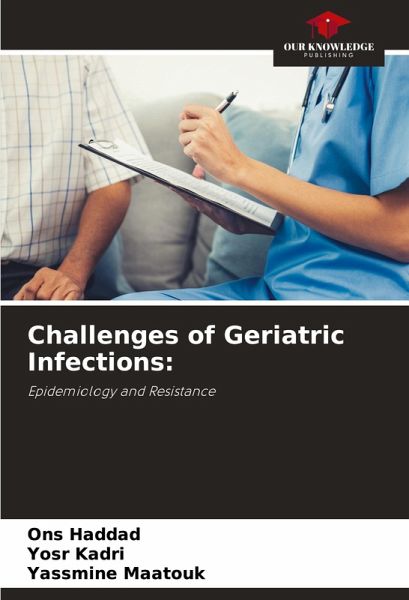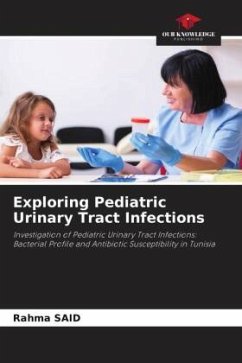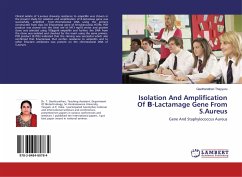
Challenges of Geriatric Infections:
Epidemiology and Resistance
Versandkostenfrei!
Versandfertig in 6-10 Tagen
29,99 €
inkl. MwSt.

PAYBACK Punkte
15 °P sammeln!
Demographic aging is leading to a significant increase in bacterial infections in the elderly, posing major public health challenges. This book explores the epidemiological and microbiological characteristics of these infections, as well as antibiotic resistance in this population, compared to young adults.Through a retrospective study carried out in 2021 at Monastir University Hospital, we isolated 3105 bacterial strains, including 1107 from geriatric patients. Surgical (29.9%) and intensive care (27.1%) departments provided the majority of samples, with urine predominating (40.2%). Gram-nega...
Demographic aging is leading to a significant increase in bacterial infections in the elderly, posing major public health challenges. This book explores the epidemiological and microbiological characteristics of these infections, as well as antibiotic resistance in this population, compared to young adults.Through a retrospective study carried out in 2021 at Monastir University Hospital, we isolated 3105 bacterial strains, including 1107 from geriatric patients. Surgical (29.9%) and intensive care (27.1%) departments provided the majority of samples, with urine predominating (40.2%). Gram-negative bacteria accounted for 78.7% of isolates, notably Escherichia coli (27.7%). Resistance, particularly worrying, was higher among the elderly (26.6%) than the young (23.4%).This book highlights the urgent need to adapt infection prevention and treatment strategies for the elderly, in order to respond effectively to this growing problem.












